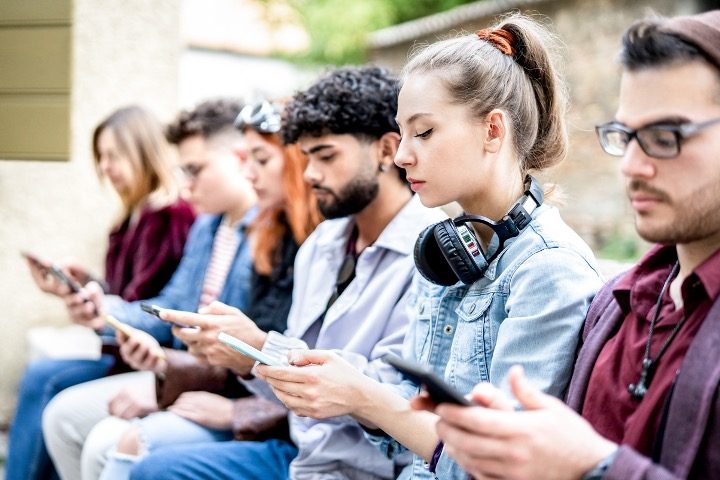
Every generation in every place has its perils. There was the fall of Rome in 476; the medieval Black Death; the ninth-century Viking occupation of England; and, generally, continual periods of privation, pestilence, and oppression throughout history. Today is no exception, either, and one of the latest challenges, we hear, is plaguing Gen Z: menu anxiety.
No, this isn’t the Onion or Babylon Bee; I’m not suddenly on fire for satire (though it does sometimes feel as if I’m in a Twilight Zone episode). As PJ Media reports:
Ordering from a menu is not an essential life skill. It just involves looking at said menu, deciding what you want, and then telling your waiter or waitress about your selection.
… But a menu, printed or otherwise, exerts too much pressure on Gen Z. The prospect of reading, choosing an item, and then (horror of horrors) talking with a previously unknown person is apparently unthinkable for some in their ranks. Yes, you read that correctly. Ordering food in public is the latest anxiety-inducing activity among the Fragilest Generation.
But, surely, this all must be an exaggeration by “Get off my lawn!” curmudgeon elders, right? Not if a study by British restaurant chain Prezzo is to be believed. As the New York Post writes:
Researchers asked more than 2,000 people how relaxed they felt while eating out, hoping to gauge how enjoyable the experience is for everyone.
About 86% of Gen Z adults (aged 18 to 24 in this study) admitted they have suffered from “menu anxiety” when dining in restaurants — compared to 67% of all respondents.
Some of these young adults (34%) reported feeling so anxious, they wind up asking other people at the table to speak to waiters on their behalf.
… The frequent occurrence of this very specific fear appeared to be triggered by the increasingly exorbitant cost of a meal out, along with the respondent worrying about not being able to find something they like on the menu, or, after the fact, regretting what they ordered. [Perfectly understandable — it’s just like getting into a bad marriage.]
Some even took it to the extreme, with almost 40% of Gen Z customers saying they simply wouldn’t go out for dinner — if they couldn’t check the menu first.
The Post further informs that a similar study conducted in the U.S. also found that younger generations are more likely to experience “menu anxiety” than their elders, though the numbers were lower all the way around. (Explanation? Perhaps eating is more traumatic in the U.K. to begin with, given British food’s reputation.)
But here’s the kicker: The percentage of Gen Zers who experience menu anxiety is about the same, another recent survey found, as the percentage of Gen Zers (81 percent) who — wait for it — believe they could write a better self-help book than millennials or boomers. Yes, chapter one will be on how to handle menu anxiety with safe spaces and comfort animals.
Other chapters will address tackling microaggressions and negative social media responses, what to do if that crazy uncle is a MAGA supporter, and how to cope if you don’t get a cushy, remote-work job paying $220,000 right out of college with your women’s studies degree.
In reality, though, this is no laughing matter because it reflects a real and larger problem: According to yet another recent study, Gen Z is more afraid of the world than older generations are and perceives it to be more dangerous — even though objective data indicate it’s safer than ever (at the moment).
What, however, accounts for the inordinate percentage of Gen Zers who are anxious about interacting with others, such as waiters? Gabriel Rubin, professor at Montclair State University and lead researcher in the study mentioned in the above paragraph, has some idea.
“He explained that many Gen Zers he’s studied have trouble socializing in real world conditions,” the Post relates.
“‘They are digital natives but, between COVID and other factors, they have missed out on important in-person social skills,’ Rubin told The Post.”
“‘Because so many Gen Zers are anxious and because so many have trouble in non-digital social spaces, even activities as simple as ordering food sometimes become things to be avoided.’”
This was precisely my conclusion based on reason and personal experience. I’ve noticed that some young people (not all) today lack social polish and may interact oddly. That is, the normal verbal and body-language responses that you would expect to witness may be absent (e.g., registering a poker-face, flat-line response as opposed to a little nod indicating that what was said was heard and grasped).
This makes sense. Children and teens now spend on average 5½ to close to 10 hours a day looking at screens — and often interact with others digitally, during which verbal and body language responses are unnecessary. Put simply, you learn to interact with people by interacting with people, not by interacting with devices.
As for Gen Z’s generally frightened state, Rubin mentions that youth today are overloaded with negative information, such as about “climate change”; they fear the end is nigh. But what’s missing in Rubin’s analysis is the same thing missing in many Gen Zers’ lives:
God.
You risk your life just by living; the mere experience of conception places us in mortal danger. Yet the simple truth that we’re all going to die and leave this world — it’s just a matter of when and how — may be truly frightening if we believe this world is all there is.
Gen Z is the most atheistic generation in American history, too. And lacking access to that highest perspective, God’s, helps explain their fear and also their lack of perspective. Ordering off a menu or “microaggressions” can seem bigger than they are when your world is astoundingly small, and it becomes small when you don’t see that great and wide and all-encompassing Creator above you — when your world is you.
All this said, there should be no inordinate condemnation of Gen Z. After all, who raised them and forged the civilization in which they were molded? Their failure is our failure, and we all have a lot of work to do lest we create a world that really is as scary as Gen Z nightmares.



